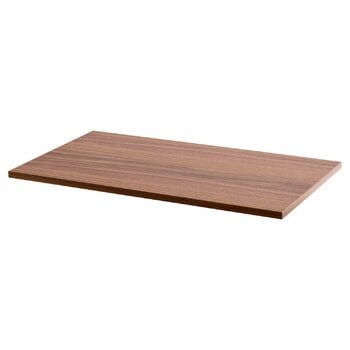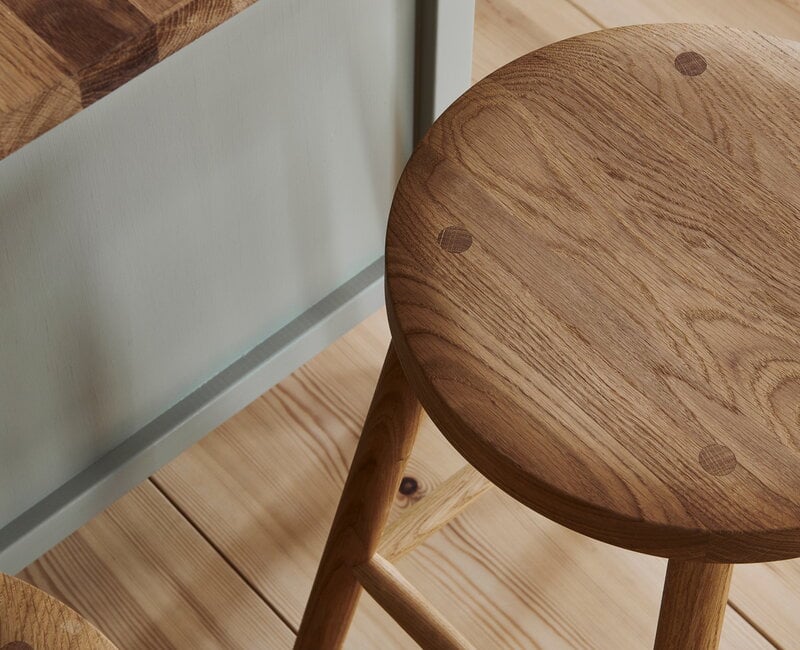The Pythagoras desk by the Swedish brand Maze is part of a unique shelving system which combines the preciseness of mathematics with the creative possibilities of design. Designed by Gustav Rosén, the Pythagoras collection was inspired by the Pythagoras' triangle theorem, making a triangle the base and most essential element of the shelving system.
Pythagoras wall brackets, shelves, and drawers give you the freedom to create shelves of various sizes, colours and shapes in any space. Use them to build a single wall shelf, bedside table, corner shelf, set of kitchen drawers, or a large shelving module covering an entire wall. The wall brackets can be mounted either below or above the shelf or drawer in four different positions, and their airy design leaves room for blank space as well. Play, experiment, and create the perfect shelf for your own needs!










